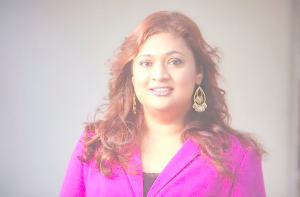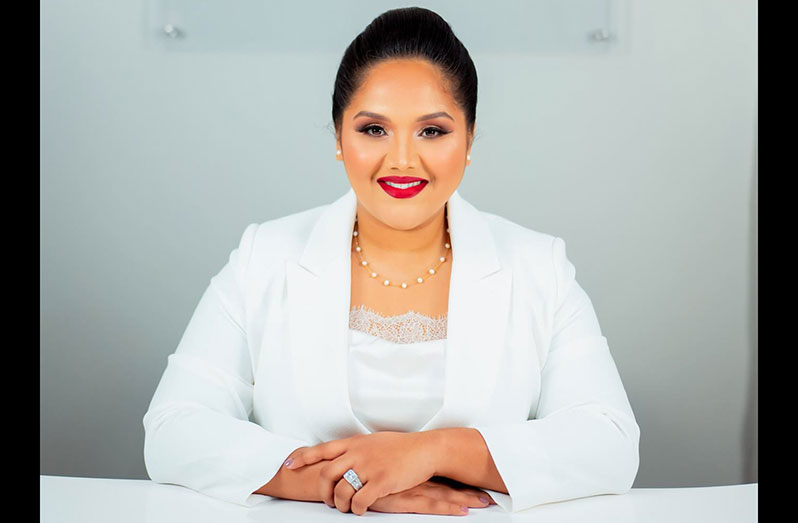WOMEN and girls all across the globe can attest to the fact that a period is often accompanied by a great deal of pain and fatigue; for some women, the symptoms could become unbearable, causing lowered blood pressure and other spin-off discomforts.
Until now, Guyana has not done any notable studies or research to assess the impact of periods on the livelihood of women and girls. To get the ball rolling, the Ministry of Education, under the leadership of Minister Priya Manickchand, rolled out a survey which seeks to assess the impact of periods on education, specifically.
“We have never studied how many girls are absent [due to their periods]; how many times a year or how many times a month; or how many of them cannot afford pads,” Minister Manickchand told the Guyana Chronicle.

She said that the survey, which has already begun virtually, is being done with the aim of garnering enough information in support of the Menstrual Hygiene Initiative being piloted by the Office of the First Lady. Her Excellency, Mrs. Arya Ali had announced her landmark mission to make sanitary pads free for Guyanese women and girls, during her first newspaper interview, exclusively with the Guyana Chronicle, in January 2021.
The First Lady had said then that her mission would be worth it, even if sanitary pads are just made available for free distribution in schools. Earlier in March, Mrs. Ali hosted her first period fundraiser; an elegant, sophisticated event coined ‘Chari-tea’. That event successfully raised $6 million for the purchase of sanitary products for school-aged girls in the hinterland.
It was explained that due to the magnitude of the mission to eliminate period poverty, the First Lady has decided that the project will be rolled out in phases, beginning with the provision of sanitary pads to the most vulnerable.
“The gravity of this problem was highlighted in a casual conversation I had with a stranger who pointed out that girls were forced to skip school routinely, and in some instances drop out permanently, because they could not afford sanitary products,” Mrs. Ali told the donors at the March 2021 event.
She emphasised that “This is unacceptable,” and that “No girl should be placed in a situation in which she is forced to [be] absent from or quit school because of her inability to afford sanitary products.” She noted that period poverty deprives girls of the very education which they need to grasp economic and other opportunities, while highlighting that it can result in harmful psychological effects such as impaired cognitive skills and social isolation.
To bring an end to this undesirable plight, the First Lady believes that there must first be an end to the denial of period poverty, after which conversations around women’s health must be normalised, even in spaces occupied only by men.
CONCERN FOR ALL
“We must also disabuse ourselves of the idea that menstruation is exclusively a female concern. It is not. It is a concern for all because when girls are deprived of education and economic opportunities as a result of period poverty, it is the entire society which is affected, not just women,” she said.
She said that everyone – civil society, Government, and the private sector – has a responsibility to ensure every single woman and girl benefit from safe and hygienic menstrual products and the dignity that this affords.
Once the distribution of free pads commences, Guyana could possibly become the second country in the world to eliminate “period poverty”. Last year, Scotland became the first to provide free sanitary products to women and girls in the country. For centuries, “period poverty” has forced women in all parts of the world to use a series of unhygienic substitutes for tampons and pads, stemming from rags and old cloths, to even socks.
THE ECONOMIC IMPACT OF PERIODS
In observance of Menstrual Hygiene Day 2018 on May 28, the World Bank had published an article which pointed to the fact that at least 500 million women and girls globally lack adequate facilities for menstrual hygiene management (MHM). “Inadequate WASH (water, sanitation and hygiene) facilities, particularly in public places, such as in schools, workplaces or health centres, can pose a major obstacle to women and girls,” the article posited. It informed too that a growing body of evidence shows that girls’ inability to manage their menstrual hygiene in schools, results in school absenteeism, which in turn, has severe economic costs on their lives and on the country. “The challenge menstruating girls and women face is often less tangible than simply the availability of infrastructure, and is rooted in social norms and beliefs. In many cultures, menstruating women are considered impure and are systematically excluded from participating in everyday activities, such as education, employment, and cultural and religious practices,” the World Bank said. The report also highlighted the taboos and stigmas attached to menstruation often lead to an overall culture of silence around the topic, resulting in limited and in some cases, misinformation on menstruation and menstrual hygiene. In conclusion, the World Bank referenced the importance of ‘contextual’ research relating to menstrual hygiene, and its commitment to supporting such initiatives.




.png)









